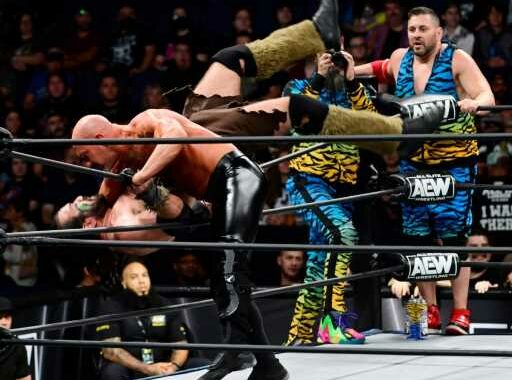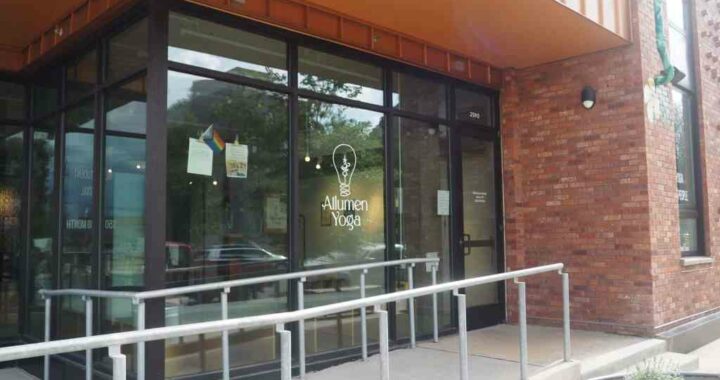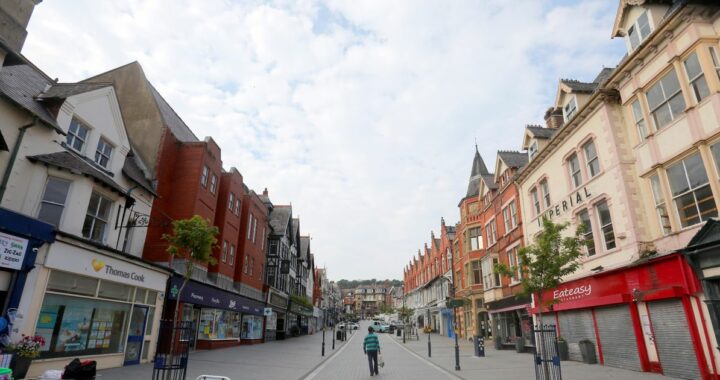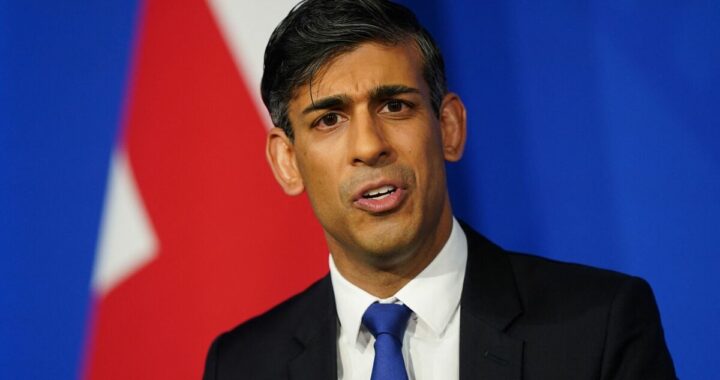Oregon Town’s Marijuana Boom Yields Envy in Idaho
6 min read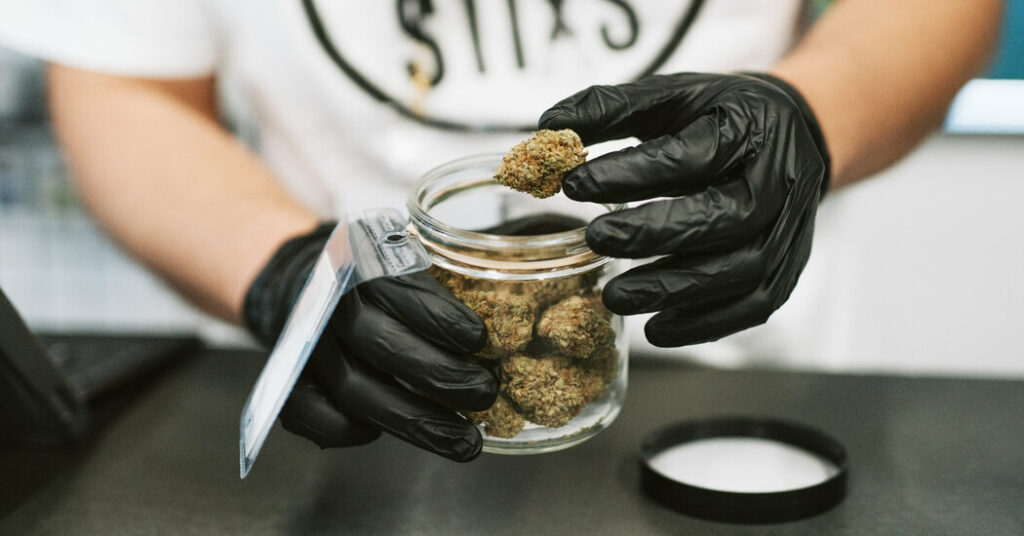
For John Leeds, the hour-and-a-half commute to and from his job as assistant manager at Treasure Valley Cannabis Company is exhausting, but logistically unavoidable.
Like nearly half of the other employees, Mr. Leeds, 39, lives in Idaho and travels along Interstate 84, past sprawling alfalfa and onion fields, to the marijuana shop just across the Oregon state line, where cannabis is legal.
“It’s really two different worlds,” Mr. Leeds said. “A lot of whiplash on this issue just in a car ride up and down the highway.”
Every day, hundreds of customers and workers like Mr. Leeds make the pilgrimage from Idaho to Ontario, Ore., a small city nestled along the Snake River that is home to 11 dispensaries — roughly one for every 1,000 residents. They can compare the aromas of various strains of marijuana and gather the staff’s insights on THC levels in edibles.
The cannabis boom is helping to drive a thriving local economy — and tax revenues that have paid for new police positions, emergency response vehicles, and park and trail improvements.
Missing out on the action has become increasingly frustrating to some politicians and longtime residents in Idaho, where the population and living costs have surged in recent years.
Because the sale or possession of marijuana remains illegal at the federal level, many states — and in this case neighboring ones — have landed on drastically different approaches for whether and how to decriminalize, regulate and tax cannabis. Since 2012, 23 states have legalized it for recreational use, and more than three dozen allow medical marijuana.
Eleven states, mostly conservative-leaning, have enacted extremely limited medical marijuana laws. Aside from cannabis-derived drugs approved by the U.S. Food and Drug Administration for limited medical use, Idaho has not legalized any cannabis sales — a prohibition that has helped its more progressive neighbors.
“Our cannabis market caters almost exclusively to Idaho residents,” said Ontario’s mayor, Debbie Folden. “This has been an economic boom unlike any this city has seen.”
The patchwork of laws, which vary by state and often by county, have created similar commuter-propelled booms in other parts of the country as well, said Mason Tvert, a partner at VS Strategies, a national cannabis policy and public affairs firm in Denver.
Texans travel to Colorado to stock up on their favorite strains or edibles, and Indiana residents make the trek to Michigan, he said. “Demand will be met by either the illegal market or by a legal market in another state,” Mr. Tvert said.
That proposition, and the larger economic equation, are not lost on officials in Idaho.
Last year, the state approached two million residents, a swell attributed largely to people moving from California and looking for overall cheaper costs of living. Only Florida grew faster.
At the same time, property taxes have increased 20 percent since 2018, according to a report from the Idaho Center for Fiscal Policy, a nonpartisan group. And the state’s budget — currently showing a surplus — is expected to come under strain, the group noted, citing legislation that cut income taxes by roughly $500 million over three years even as population growth put new demands on health care, education and transportation.
Some longtime residents of the state are tired of seeing the marijuana tax dollars go elsewhere as prices increase from the newer residents arriving.
Legalizing and taxing cannabis sales could bring in revenue and help offset any budgetary concerns, said Joe Evans, a lead organizer for Kind Idaho, a group pushing to legalize medical marijuana.
“That money should not be leaving the state of Idaho,” said Mr. Evans, who noted the entrepreneurial spirit of the region, home to Joe Albertson, who started a local grocery store chain, Albertsons, and laid the foundation for a multibillion-dollar national business.
But for Mr. Evans, who served with the Army in Iraq and Afghanistan and knows fellow veterans who use cannabis for pain relief, legalization is also about something bigger than money. It is long past time, he said, for his state to legalize a substance that can offer relief for some medical conditions.
Patients who use marijuana, especially older or chronically ill Idahoans, shouldn’t have to drive an hour or more to Oregon, he said.
“This is about patient advocacy,” said Mr. Evans, who hopes the state will next year consider a measure to legalize cannabis for medicinal use.
It would not be the first try.
Initiatives to legalize cannabis for medicinal use failed to qualify for the ballot in 2012, 2014 and 2016. In 2020, supporters of a ballot measure suspended efforts to gather signatures because of the onset of the Covid-19 pandemic, and the next year a bipartisan group of state lawmakers introduced a medical marijuana bill that failed to get out of committee.
As those efforts foundered, customers in Idaho increasingly made the trek to Oregon, where voters legalized cannabis for medical use in 1998 and for recreational use in 2014.
Few areas in the state have benefited as much as Malheur County, home to Ontario. The city, which voted to legalize local recreational sales of marijuana in 2018, is the only part of the county with dispensaries. Even so, Malheur County racked up roughly $104 million in total cannabis sales last year, outpacing each of the state’s 35 other counties except Multnomah, which includes Portland. In 2020, the first full year in which Ontario allowed cannabis sales, the city took in $1.8 million in resulting tax revenue. The next year, the revenue increased 65 percent. The area is a conservative pocket in a progressive state — a movement called “Greater Idaho” wants the region to secede from Oregon and become part of Idaho — and Mayor Folden, an Ontario native, calls herself a conservative Republican. That hasn’t blocked the city’s emergence as a cannabis capital. The tax revenues, the mayor said, have been a municipal lifeline. But the city is stockpiling its reserves, Ms. Folden said, because she expects that within five years, Idaho will move ahead with some form of legalization. “We know that this will not last forever, so we’re being prudent,” Ms. Folden said. “We know the economic winds, as they say, might shift.” In the fall, a poll for The Idaho Statesman, a Boise newspaper, found that 68 percent of residents backed legalizing marijuana for medicinal purposes. For recreational use, 48 percent supported legalization, while 41 percent were opposed. Gov. Brad Little of Idaho, who is in his second term, staunchly opposes marijuana legalization. In an emailed statement, Mr. Little, a Republican, said that “legalization of marijuana triggers numerous unintended consequences.” But some local politicians in Idaho have begun to consider the economics of the issue. Patrick Bageant, a Boise councilman, said the need for alternative forms of tax revenue was increasingly urgent. “Legalizing marijuana can help bring in different forms of cash,” Mr. Bageant said. “Just look around the country — we as a state should be more forward-looking.” Adam Watkins, a software engineer and a constituent of Mr. Bageant’s, has lived in the city’s West End neighborhood for the past decade. His home value has doubled since 2018, when he paid $3,200 in property taxes; now he pays close to $4,200. “You look around at other states that have legalized marijuana decades ago, when it comes to medical marijuana, and you just cannot help but think, why are we so backward on this issue?” said Mr. Watkins, who supports legalization for philosophical and fiscal reasons. “This is a drug with proven health effects, and we are just leaving this issue to other states to solve,” he added. “We are turning blindly, like this is not an issue, when it clearly is.” Back in Ontario on a recent afternoon, red, white and blue license plates emblazoned with the phrase “Scenic Idaho” lined the parking lot of Treasure Valley Cannabis. (A federal law prohibits transporting marijuana between states.) Mr. Leeds manages a staff of 45 employees four days a week. He used to work five days, but made a deal with the owner, Jeremy Archie, to work four to cut back on his commute. That day, Mr. Leeds and Mr. Archie walked the floor past vape pens, various strains of cannabis, and sweatshirts acclaiming the company and the state. They greeted customers and shared stories of patients battling health issues like cancer, who use their products to ease pain. On one wall hung a poster board proclaiming a 25 percent discount for customers car-pooling with at least three people. A small gesture of thanks, Mr. Archie said, for their Idaho customers. “The Idaho market has made this a very successful business,” he said. Kurtis Lee is an economics correspondent based in Los Angeles. Before joining The Times in 2022, he was a national correspondent for The Los Angeles Times, writing about gun violence, income inequality and race in America. @kurtisalee Source: Read Full Article


